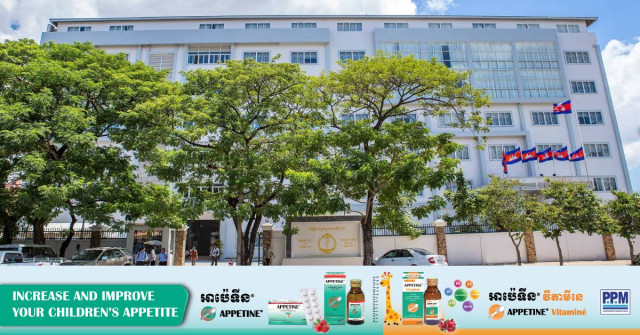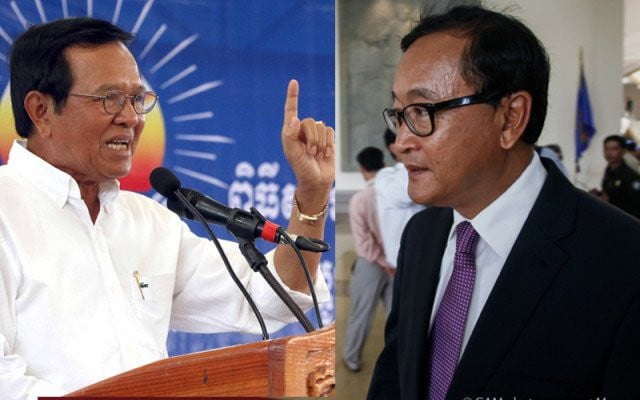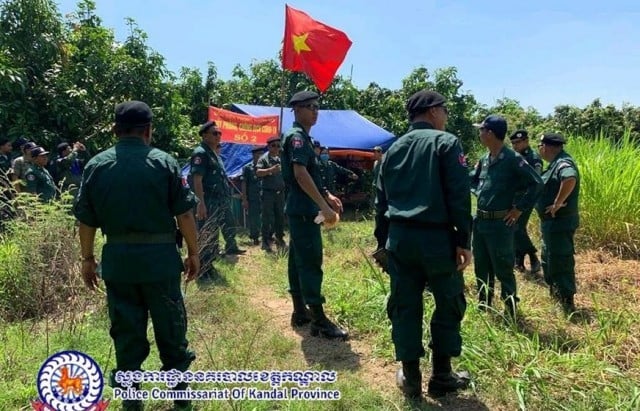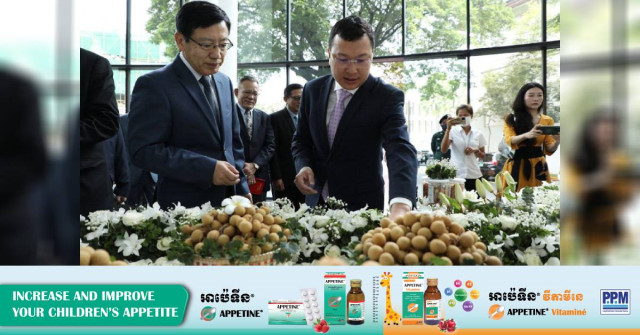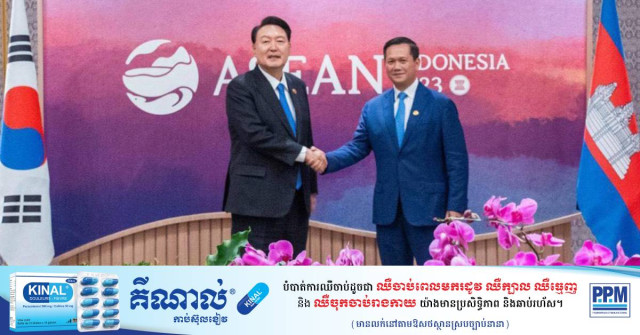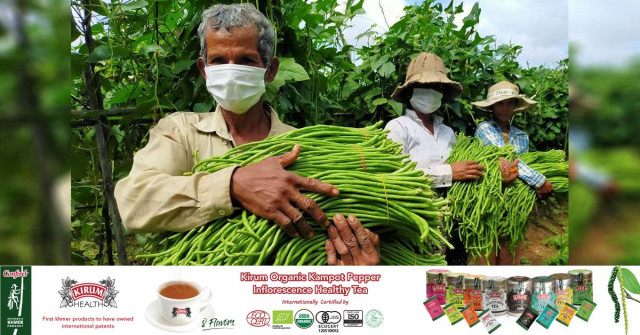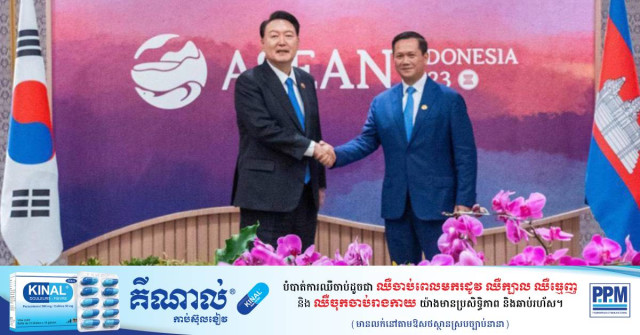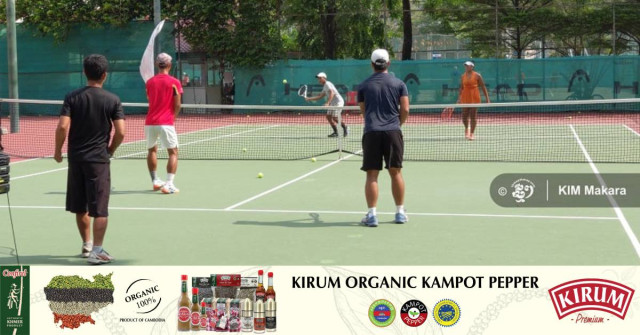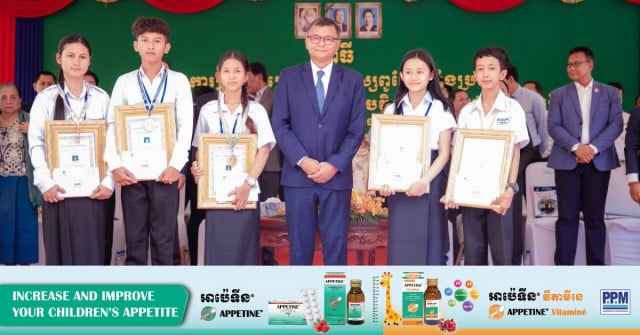Geopolitics and Economy Pivotal in Russia-Cambodia Relations

- By Prom Thary
- May 7, 2024 9:50 AM
The diplomatic ties between Russia and Cambodia have had a significant impact on geopolitical debates, starting with the establishment of diplomatic relations during the Cold War. The Southeast Asian country received significant assistance from the Soviet Union (now Russia) in both the Vietnam War and the Cambodian Civil War. In addition, a great deal of cultural and educational interchange has been formed, which promotes understanding and fortifies relations between the peoples of Cambodia and Russia.
In the past few years, both countries have worked hand in hand to intensify their high-level visits and diplomatic talks. Events such as former Prime Minister Hun Sen's 2019 visit to Moscow and Russian Foreign Minister Sergey Lavrov's 2021 visit to Cambodia demonstrate their desire to strengthen their relationship. In addition, Vladimir Putin received heartfelt congratulations from Prime Minister Hun Manet on his victory in the 2024 presidential election. Russia and Cambodia collaborate in many domains, including trade, education, culture, and defense. Cambodia has been receiving military assistance and training from Russia, which has gradually increased defense and business cooperation.
Significant increases in bilateral trade have also occurred in the trade relationship between Russia and Cambodia, indicating positive developments. The two nations have participated in several trade agreements and initiatives to deepen their economic ties. Cambodia's trade surplus with Russia in 2022 was noteworthy, mostly due to exports of textiles worth $7.93 million, apparel and accessories worth $2.13 million, and animal hides for $1.72 million. Nonetheless, Russia had a larger trade surplus with Cambodia, primarily as a result of exports of mineral products ($28.6 million), rubber and plastics ($2.15 million), and animal hides ($1.69 million).
Russia and Cambodia have demonstrated their strong desire to develop closer relations through their cooperation in the defense sector. This was particularly evident on November 26–29, 2023, when a Russian cruiser spent four days in the Preah Sihanouk province. The two countries greatly value their close military collaboration, which is demonstrated by this visit. Cooperative training initiatives and the exchange of military delegations are examples of this cooperation. Moreover, the collaboration in education between these countries is a primary driver of closer relations. The purpose of this partnership is to assist Cambodian students studying in Russia with their academic and professional development. The Russian government offers academic collaborations, exchange agreements, and scholarship programs that provide Cambodian students with a favorable learning environment. Currently, 19 women out of 77 Cambodian students are studying a variety of courses in Russia. As a result of academic exchanges throughout the 1980s, around 8,000 Cambodians studied in the USSR and Russia. Through this educational exchange, both nations are demonstrating their steadfast dedication to enhancing the knowledge and skills of their youth, which will aid in Cambodia's growth.
Moreover, the relationships between Russia and Cambodia depend heavily on cross-cultural exchanges. These exchanges strengthen bonds and promote mutual understanding between the people of the two countries. Both nations benefit from a robust collaboration that is fostered through a variety of cultural events, including art exhibitions, film festivals, and traditional performances in 2024. These cross-cultural gatherings serve to foster a greater understanding of one another's customs and heritage while also showcasing the diversity of their own cultures. In addition, Cambodia has received 12,421 Russian tourists as of early 2024.
Despite taking a stance against Russia's invasion of Ukraine, under the leadership of former Prime Minister Hun Sen, Cambodia needs to be cautious in adhering to ASEAN regulations as well as national laws. The relationship between Cambodia and Russia has both opportunities and challenges. These include geopolitical complexities, economic barriers, and new opportunities for collaboration. When it comes to bilateral cooperation between neighboring countries, regional power dynamics and interests play a significant role. There are also economic roadblocks such as trade restrictions and infrastructure limitations. However, there are growing industries like technology and tourism that offer opportunities for mutual benefit. Developing stronger diplomatic relations is crucial to resolving common problems and building confidence. Building relationships through educational initiatives and cross-cultural interactions is also important for advancing empathy and understanding. The potential for a prosperous engagement between Cambodia and Russia is highlighted by regional cooperative frameworks like ASEAN and the Eurasian Economic Union, which offer significant prospects for cooperation. Russia is ranked 8th out of 11 countries in terms of diplomatic ties with both ASEAN members and Cambodia.
To further strengthen the already strong bilateral relationship, Cambodia and Russia must expand their economic cooperation beyond customary domains. Both nations can look into potential partnerships in areas such as tourism marketing, technology transfer, and infrastructure development. They could significantly strengthen their economic ties by supporting cooperative investment projects and creating advantageous business environments. Moreover, fostering exchanges in education and culture is essential to building ties and mutual understanding between their peoples. Through ongoing military assistance and collaborative training initiatives, it is also essential to fortify strategic defense and security cooperation to further advance regional peace and stability.
Prom Thary is a PhD scholar in political science at the RUDN University in Russia. He has a Master's degree in Political Science from Saint Petersburg State University in Russia, as well as a Master's degree in Law from UME University in Cambodia. He also serves as a civil servant in the Ministry of Interior.








